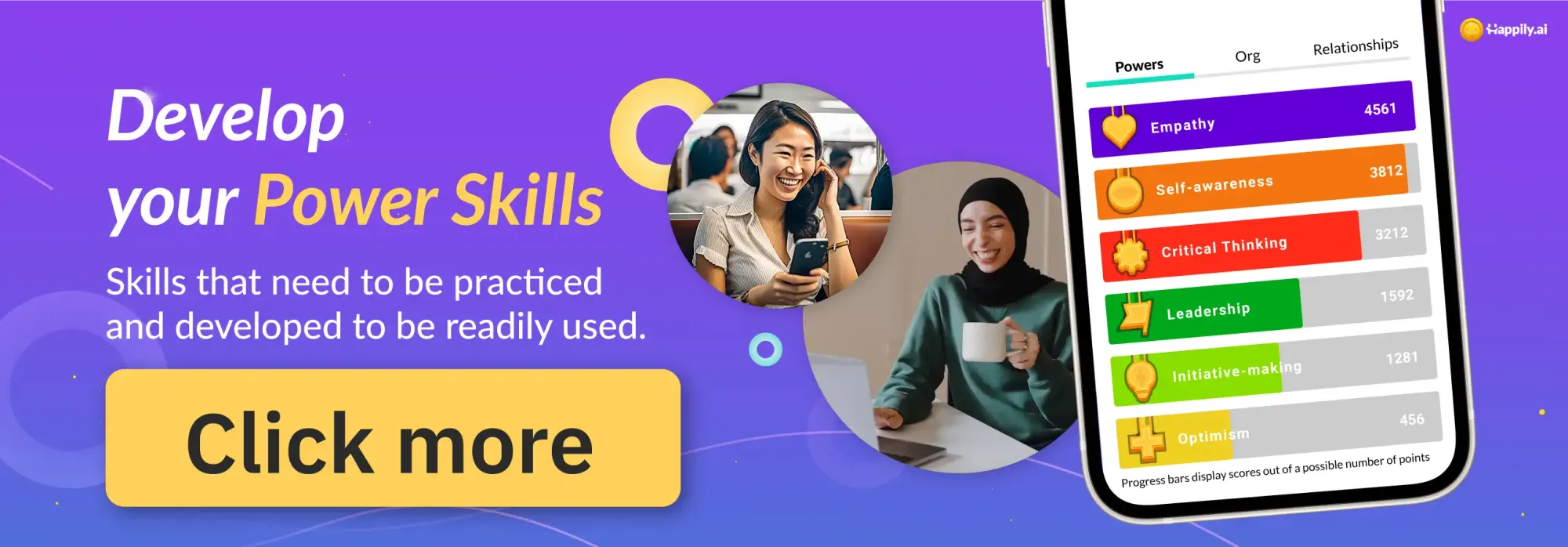Emotional Intelligence (EQ) has become an increasingly important topic in the corporate world. EQ is the ability to identify, understand, and manage one's own emotions, as well as the emotions of others. A high-EQ individual can regulate their emotions efficiently and read the emotions of others, making them exceptional team players.
One of the 5 elements of EQ is self-awareness. People who are self-aware tend to be confident, creative, make better decisions, build strong relationships, and communicate effectively. As a result, employees with self-awareness are likely to advance in their careers, while leaders with this skill can manage their teams effectively and create a more satisfied workforce, leading to greater profits for the organization.
Despite its importance, there is still a lack of clarity among many people regarding the true meaning of self-awareness. In this blog post, we will explore the concept of self-awareness, and how to cultivate self-awareness in the workplace.
What is self-awareness?
Self-awareness is the ability to perceive and understand the things that make you who you are as an individual, including your personality, actions, values, beliefs, emotions, and thoughts. It is a multifaceted concept that can be broken down into two types: internal self-awareness and external self-awareness.
- Internal self-awareness: It refers to the ability to understand your values, aspirations, strengths, weaknesses, and impact on others. It allows you to make choices that align with your true self. Without internal self-awareness, you may unwittingly act in ways that are not aligned with your happiness and success.
- External self-awareness: It is about seeing yourself from the outside in. It involves understanding how other people view you and how you impact them. People with well-developed external self-awareness are able to build stronger and more trusting relationships by taking others' perspectives and adapting their behavior accordingly. On the other hand, those with poor external self-awareness may come across in ways they don't intend and be blindsided by critical feedback.
Interestingly, research has shown that there is often no relationship between internal and external self-awareness, and sometimes even an inverse one. This means that someone who is highly in touch with their own emotions may not be aware of how they come across to others. Conversely, someone who is too fixated on how others perceive them may not be making choices that serve their own happiness and success. Developing both types of self-awareness is important for achieving success and satisfaction in both personal and professional life.
Examples of self-awareness
Situation A
Jake is facing difficulties in preparing his quarterly report and often fails to produce satisfactory outcomes. He acknowledges the difference between his performance and expectations and embarks on self-assessment to determine the root cause of the issue and find ways to improve.
Upon reflecting on the problem, Jake realizes that he faces no problem in executing the necessary work for the report, but he struggles in writing it cohesively and comprehensively. In an attempt to bridge this gap, Jake decides to enhance his writing skills by enrolling in a writing course, seeking feedback from a colleague before submitting his report, and creating a reusable template to ensure all necessary details are included in future reports.
Situation B
Julian’s low self-esteem leads to depressive symptoms and holds her back from accepting opportunities. To address this, she seeks the help of a therapist to cultivate self-awareness.
The next time an opportunity comes her way. Initially, she decides to turn it down, telling herself she doesn’t want to do it. But with the help of self-awareness techniques, Julian realizes that her fear of not being good enough is holding her back. To tackle these thoughts, Julian then reminds herself of her worth and redirects her thoughts to “What if I succeed?” insteads of “What if I fail?”. She accepts the opportunity, continuing to utilize self-awareness and self-love to improve her chances of success.
How to improve self-awareness
Self-awareness is a competency that can be acquired and honed over time. In addition, self-awareness is the primary building block to fostering emotional intelligence or EQ. This is because if you can recognize and appreciate your own emotions and sentiments, you are better positioned to regulate your emotions, which is a second component of EQ.
As a result, self-awareness development is essential for every leader, manager, and employee for their personal growth as well as the betterment of their organization. Below, we offer suggestions for techniques and resources to help you enhance your self-awareness.
1. Understand yourself through assessments:
- Take the 16 Personalities test to understand your behavior and how it impacts those around you.
- Complete Tasha Eurich's Self-awareness quiz in just 5 minutes to determine your level of self-awareness. The quiz also offers immediate self-improvement techniques.
2. Seek Feedback: Ask for feedback from family, friends, colleagues, and superiors. This feedback will help you understand how others perceive you and how your behaviors and emotions affect people around you.
3. Journal: Use the information gathered from tests and feedback to write in a journal. By reflecting on events, including our thoughts, feelings, emotions, and coping mechanisms, we can gain a better understanding of ourselves. Keeping a journal is an effective way to help us recognize patterns and triggers that lead to anxiety and tension and identify areas that need improvement.
It also is worth noting that self-awareness shares similarities with “mindfulness” and the idea of “being present”, concepts that Thai people have been familiar with since childhood. In fact, meditation is also an effective tool for improving self-awareness.
In conclusion, self-awareness is the foundation of emotional intelligence in the workplace. Developing self-awareness can lead to improved communication, better decision making, and increased emotional intelligence. By taking the time to self-assess, seeking feedback, and keeping a journal, individuals can develop self-awareness and enhance their emotional intelligence in the workplace.










